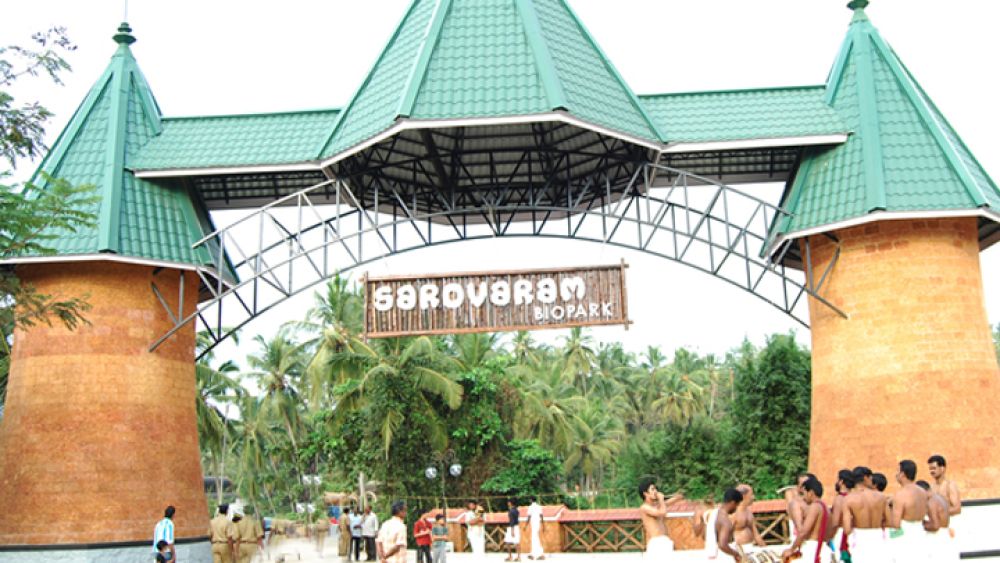

The quaint city of Kozhikode, once famed for its historical role in the spice trade, is home to the Sarovaram Bio Park, a destination that has gradually emerged as an integral part of Kerala's ecotourism map. This eco-friendly initiative was conceptualized with the aim of conserving the area's wetland ecosystem while providing a serene retreat for both locals and tourists. Over the years, its development has been carefully managed to ensure a sustainable approach that protects the environment and educates visitors.
Sarovaram Bio Park officially opened its doors to the public in the early 2000s. The park was developed as part of the Canoly Canal conservation project. It spans across 200 hectares and includes wetlands that are part of the Ramsar Convention list of wetlands of international importance. The project was undertaken by the Tourism Department in conjunction with the Forest Department of Kerala with a vision to preserve the native flora and fauna while encouraging nature-based tourism.
The eco-friendly ambiance of Sarovaram Bio Park has made it a favoured spot for those who seek tranquillity amid nature. It features mangrove forests, a butterfly park, and various plant species, some of which are medicinal. The park also offers boating facilities, an open-air theatre, boardwalks, musical dancing fountains, and an area designated for picnics. It has been instrumental in educating visitors about the importance of wetland ecosystems and biodiversity conservation. Over the years, the park has witnessed a steady increase in visitor numbers, contributing to Kozhikode's growing reputation as a viable eco-tourism destination.
The latest tourism trends in Sarovaram Bio Park revolve around sustainable and responsible tourism practices. Nature walks, bird watching, and photography are popular activities. As global awareness concerning the environment rises, more tourists are seeking destinations that offer experiences with minimal ecological footprints. The park is a response to this demand, inviting guests to enjoy the natural environment without harming it.
In keeping with the digital age, Sarovaram Bio Park is gradually integrating technology to enhance visitor experiences. From digital information kiosks to mobile apps that provide interactive guides, the park is leveraging technology while maintaining an environmentally sound presence.
The future looks promising for Sarovaram Bio Park as ecotourism continues to grow globally. With Kerala's government emphasising sustainable tourism practices, initiatives like Sarovaram Bio Park could become templates for similar projects elsewhere. Preservation of the natural habitat, combined with awareness and education, will likely keep draw visitors and researchers interested in eco-conservation efforts.
In conclusion, Sarovaram Bio Park is a testament to Kozhikode's commitment to sustainable tourism and conservation. Its continued popularity among tourists seeking a green retreat will undoubtedly play a pivotal role in the region's ecological and tourism landscape.